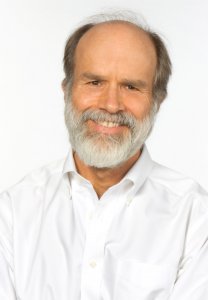Presented By: Center for Japanese Studies
CJS Thursday Lecture Series | Identity Politics in Japan
J. Mark Ramseyer; Mitsubishi Professor of Japanese Legal Studies; Harvard Law School

In 1969, Japan launched a massive subsidy program for the "burakumin" outcastes. The subsidies attracted the mob, and the higher incomes now available through organized crime compensated those burakumin who abandoned the legal sector for criminal careers. In the process, the subsidies gave new support to the tendency many Japanese already had to equate the burakumin with the mob.
The government ended the subsidies in 2002. Eric Rasmusen and I explore the effect of the termination by merging 30 years of municipality data with a long-suppressed 1936 census of burakumin neighborhoods. First, we find that outmigration from municipalities with more burakumin increased after the end of the program. Apparently, the higher illegal income generated by the subsidies had restrained young burakumin from joining mainstream society. Second, we find that once the mob-tied corruption and extortion associated with the subsidies neared its end, real estate prices rose in municipalities with burakumin neighborhoods. With the subsidies gone and the mob in retreat, other Japanese found the formerly burakumin communities increasingly attractive places to live.
Mark Ramseyer spent most of his childhood in provincial towns and cities in Miyazaki, attending public schools for K-6. He returned to the U.S. for college. Before attending law school, he studied Japanese history at the Center for Japanese Studies at the University of Michigan. Ramseyer graduated from Harvard Law School in 1982. He clerked for the Hon. Stephen Breyer (then on the First Circuit), worked for two years at Sidley & Austin (in corporate tax), and studied as a Fulbright student at the University of Tokyo. After teaching at UCLA and the University of Chicago, he came to Harvard in 1998. He has also taught or co-taught courses at several Japanese universities (in Japanese). In his research, Ramseyer primarily studies Japanese law, and primarily from a law & economics perspective. In addition to a variety of Japanese law courses, he teaches the basic Corporations course.
Cosponsored by the U-M Law School.
The government ended the subsidies in 2002. Eric Rasmusen and I explore the effect of the termination by merging 30 years of municipality data with a long-suppressed 1936 census of burakumin neighborhoods. First, we find that outmigration from municipalities with more burakumin increased after the end of the program. Apparently, the higher illegal income generated by the subsidies had restrained young burakumin from joining mainstream society. Second, we find that once the mob-tied corruption and extortion associated with the subsidies neared its end, real estate prices rose in municipalities with burakumin neighborhoods. With the subsidies gone and the mob in retreat, other Japanese found the formerly burakumin communities increasingly attractive places to live.
Mark Ramseyer spent most of his childhood in provincial towns and cities in Miyazaki, attending public schools for K-6. He returned to the U.S. for college. Before attending law school, he studied Japanese history at the Center for Japanese Studies at the University of Michigan. Ramseyer graduated from Harvard Law School in 1982. He clerked for the Hon. Stephen Breyer (then on the First Circuit), worked for two years at Sidley & Austin (in corporate tax), and studied as a Fulbright student at the University of Tokyo. After teaching at UCLA and the University of Chicago, he came to Harvard in 1998. He has also taught or co-taught courses at several Japanese universities (in Japanese). In his research, Ramseyer primarily studies Japanese law, and primarily from a law & economics perspective. In addition to a variety of Japanese law courses, he teaches the basic Corporations course.
Cosponsored by the U-M Law School.